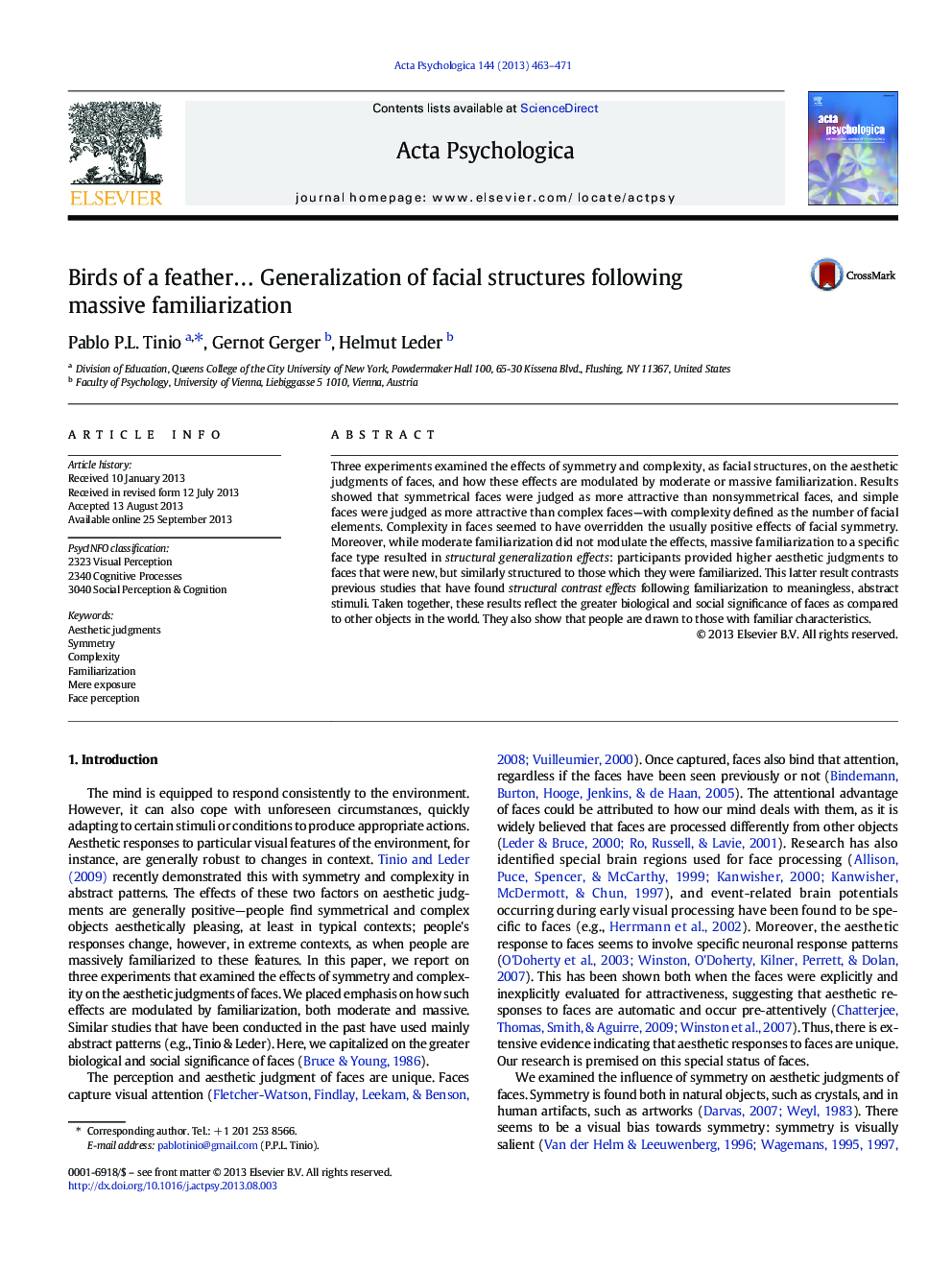| Article ID | Journal | Published Year | Pages | File Type |
|---|---|---|---|---|
| 10453796 | Acta Psychologica | 2013 | 9 Pages |
Abstract
Three experiments examined the effects of symmetry and complexity, as facial structures, on the aesthetic judgments of faces, and how these effects are modulated by moderate or massive familiarization. Results showed that symmetrical faces were judged as more attractive than nonsymmetrical faces, and simple faces were judged as more attractive than complex faces-with complexity defined as the number of facial elements. Complexity in faces seemed to have overridden the usually positive effects of facial symmetry. Moreover, while moderate familiarization did not modulate the effects, massive familiarization to a specific face type resulted in structural generalization effects: participants provided higher aesthetic judgments to faces that were new, but similarly structured to those which they were familiarized. This latter result contrasts previous studies that have found structural contrast effects following familiarization to meaningless, abstract stimuli. Taken together, these results reflect the greater biological and social significance of faces as compared to other objects in the world. They also show that people are drawn to those with familiar characteristics.
Keywords
Related Topics
Life Sciences
Neuroscience
Cognitive Neuroscience
Authors
Pablo P.L. Tinio, Gernot Gerger, Helmut Leder,
